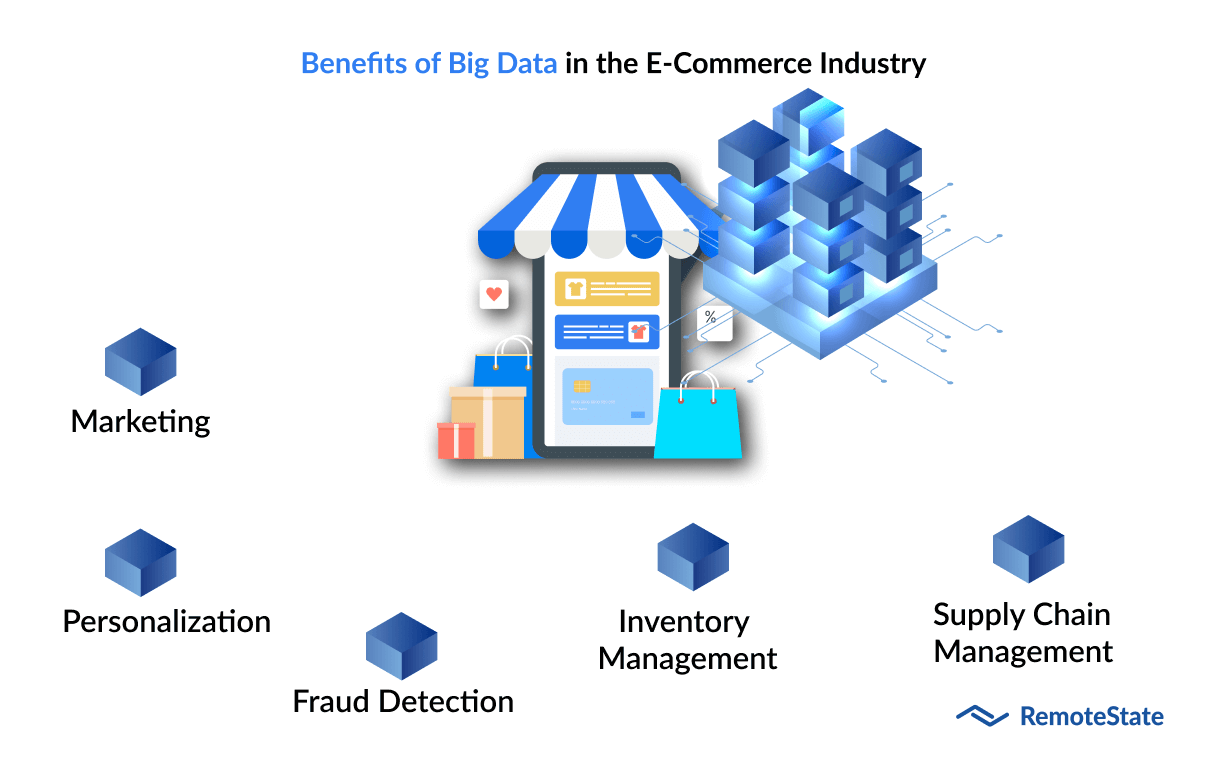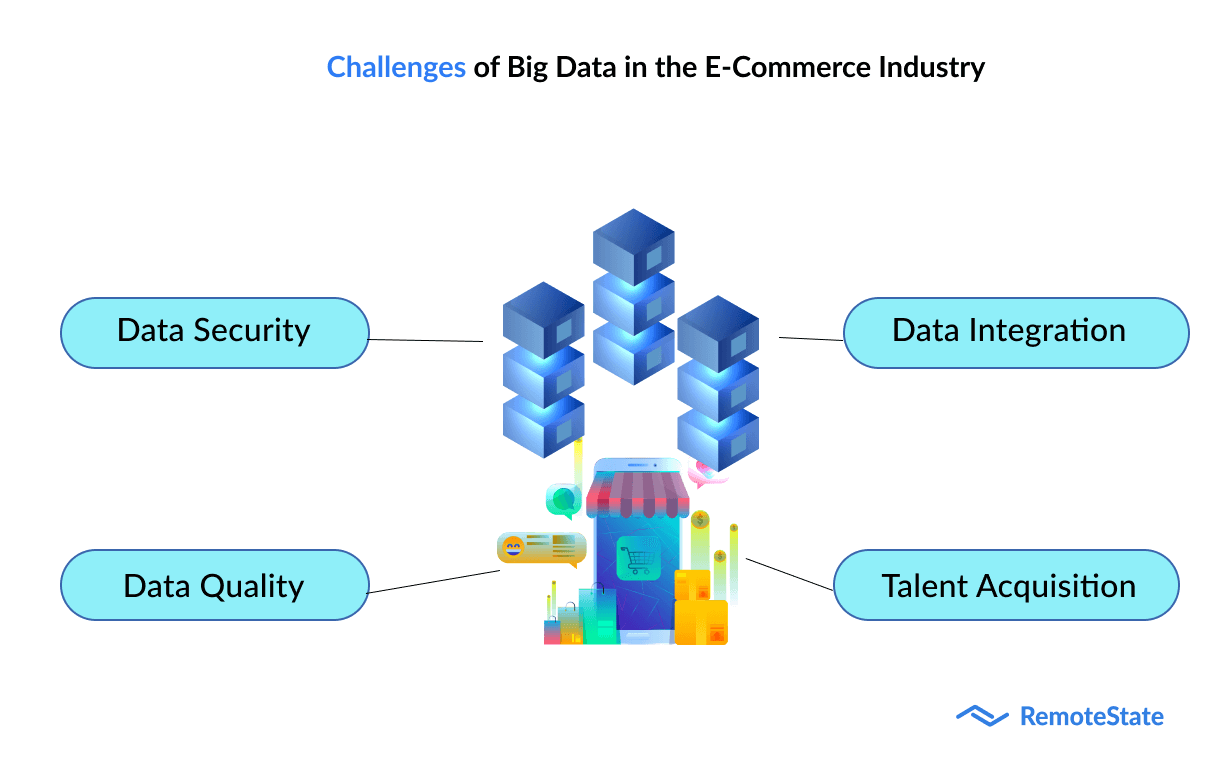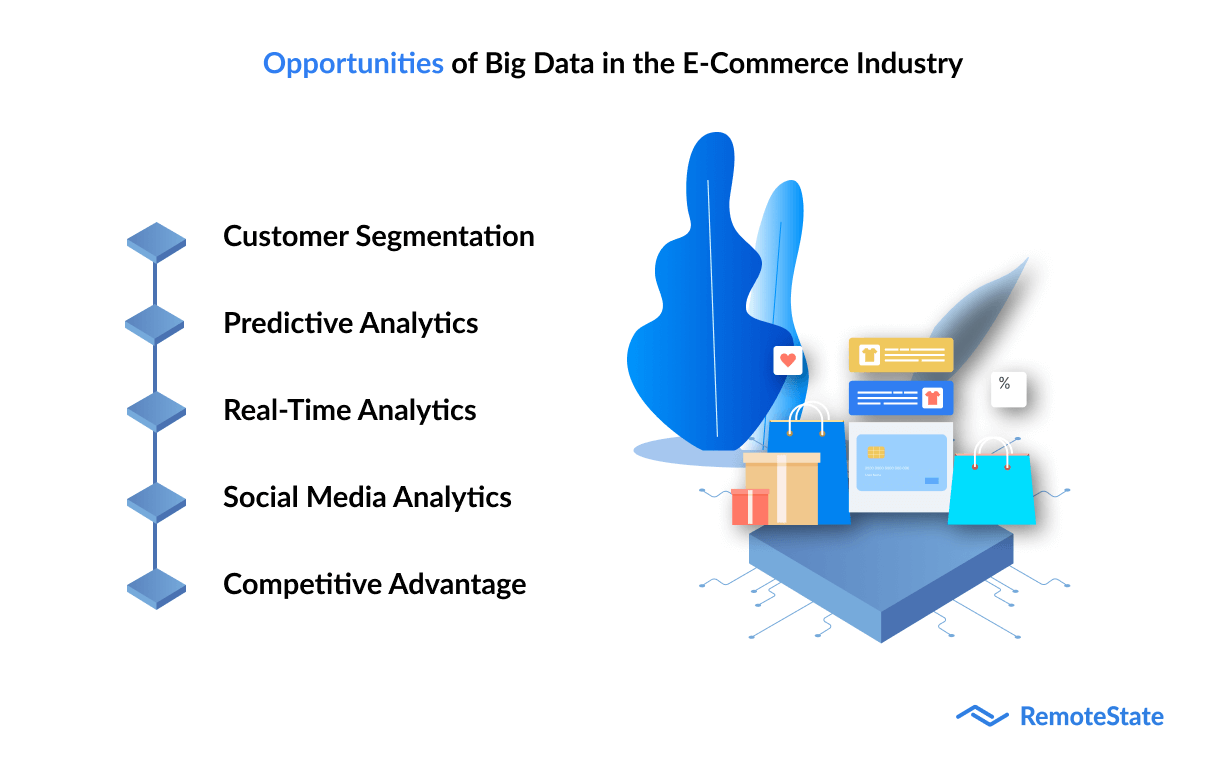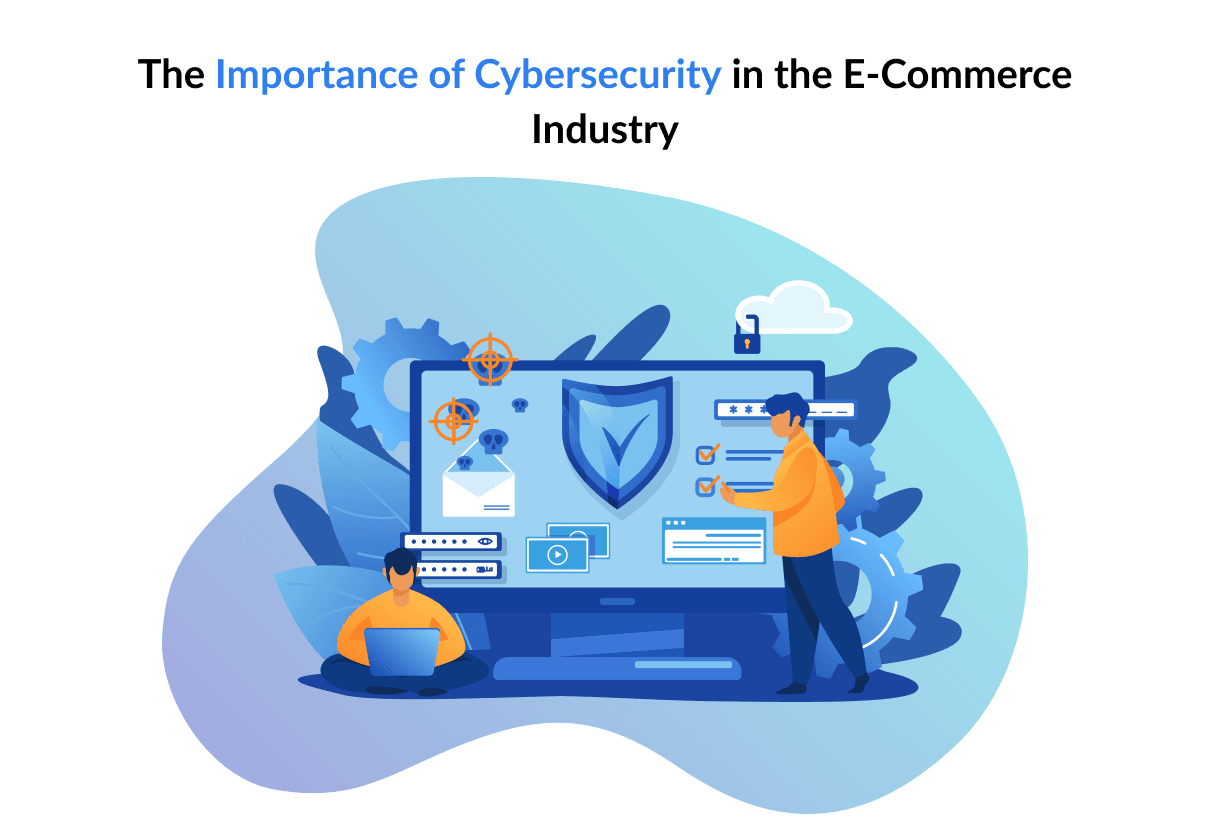Introduction
The rise of e-commerce has been nothing short of phenomenal. In just a few decades, online shopping has transformed the retail industry and become an integral part of our daily lives.
The rise of e-commerce has been nothing short of phenomenal. In just a few decades, online shopping has transformed the retail industry and become an integral part of our daily lives. One of the key drivers of this growth has been the availability of vast amounts of data. E-commerce companies can collect and analyze data from various sources, including customer behavior, sales trends, and website analytics, to gain insights into their customers' needs and preferences. This data can be used to improve business operations, increase sales, and enhance customer satisfaction.
In this blog post, we will explore the role of big data in the e-commerce industry, and its benefits, challenges, and opportunities.
Benefits of Big Data in the E-Commerce Industry

Personalization
One of the most significant benefits of big data in e-commerce is the ability to personalize the customer experience. By collecting data on customer behavior, e-commerce companies can create personalized recommendations, promotions, and advertisements that are tailored to the individual's needs and preferences. This not only improves customer satisfaction but also increases the likelihood of repeat business and customer loyalty.
Inventory Management
Effective inventory management is critical to the success of any e-commerce business. Big data can help companies analyze sales trends and predict future demand to optimize inventory levels, reduce stock-outs, and prevent overstocking. This not only helps to reduce costs but also ensures that customers can find what they need when they need it.
Marketing
Big data can be used to optimize marketing campaigns and increase their effectiveness. By analyzing customer data, e-commerce companies can identify which channels and tactics are most effective and allocate resources accordingly. This helps to improve ROI and maximize the impact of marketing efforts.
Fraud Detection
E-Commerce companies are at risk of various types of fraud, including identity theft, credit card fraud, and chargebacks. Big data can be used to detect and prevent fraud by analyzing customer behavior, transaction data, and other relevant data points. This not only protects the business but also enhances customer trust and confidence.
Supply Chain Management
The e-commerce supply chain can be complex and difficult to manage. Big data can help to optimize supply chain operations by providing real-time visibility into inventory levels, delivery times, and other critical metrics. This helps to improve efficiency, reduce costs, and enhance customer satisfaction.
Challenges of Big Data in the E-Commerce Industry

Data Security
One of the biggest challenges of big data in the e-commerce industry is data security. E-commerce companies must ensure that customer data is protected from unauthorized access, theft, and misuse. This requires robust security protocols, including encryption, access controls, and monitoring.
Data Quality
The accuracy and completeness of data are critical to the success of big data initiatives. However, e-commerce companies may face challenges in ensuring data quality, including data duplication, inconsistencies, and errors. This can lead to inaccurate insights and poor decision-making.
Data Integration
E-Commerce companies may collect data from various sources, including website analytics, customer interactions, and social media. However, integrating this data can be challenging, as it may be stored in different formats and systems. This can make it difficult to gain a complete view of customer behavior and preferences.
Talent Acquisition
Big data initiatives require skilled data scientists, analysts, and engineers. However, there is a shortage of talent in this field, making it challenging for e-commerce companies to find and retain the talent they need. This can lead to delays and increased costs in implementing big data initiatives.
Opportunities of Big Data in the E-Commerce Industry

Customer Segmentation
Big data can help e-commerce companies segment their customer base and target specific demographics with personalized promotions and recommendations. By understanding the unique needs and preferences of different customer groups, companies can increase customer satisfaction and loyalty.
Predictive Analytics
E-Commerce companies can use big data to predict future sales trends and customer behavior, allowing them to make informed decisions about inventory management, marketing, and other key areas of the business. Predictive analytics can also help companies identify potential opportunities for growth and expansion.
Real-Time Analytics
Real-Time analytics allow e-commerce companies to quickly respond to changes in customer behavior and market conditions. By analyzing data in real time, companies can make quick and informed decisions that can help to improve customer satisfaction and increase sales.
Social Media Analytics
Big data can help e-commerce companies analyze social media data to gain insights into customer sentiment and preferences. This can inform marketing campaigns, product development, and other areas of the business.
Competitive Advantage
E-Commerce companies that successfully implement big data initiatives can gain a competitive advantage in the marketplace. By using data to improve business operations, companies can increase efficiency, reduce costs, and improve customer satisfaction, setting themselves apart from competitors.
Conclusion
Big data has revolutionized the e-commerce industry, providing companies with unprecedented insights into customer behavior, sales trends, and other critical metrics. While there are challenges associated with implementing big data initiatives, the benefits and opportunities are significant.
By using data to improve business operations, e-commerce companies can increase efficiency, reduce costs, and improve customer satisfaction. As the e-commerce industry continues to grow and evolve, big data will undoubtedly play an even more significant role in shaping the future of the industry.
Unlock the Power of Big Data in the E-Commerce Industry with Remotestate's Custom Software Solutions!
Remotestate can help e-commerce companies leverage big data by providing custom software solutions and data management tools. By working with Remotestate, e-commerce companies can streamline their data collection and analysis processes, and gain valuable insights that can inform business decisions.
With Remotestate's expertise in software development and data management, e-commerce companies can improve their efficiency, reduce costs, and enhance the customer experience.
FAQs
What is big data?
Big data refers to vast amounts of structured and unstructured data that can be analyzed to gain insights and inform decision-making.
What are the benefits of big data in the e-commerce industry?
Some of the key benefits of big data in e-commerce include personalization, inventory management, marketing optimization, fraud detection, and supply chain management.
What are the challenges of big data in the e-commerce industry?
Some of the key challenges of big data in e-commerce include data security, data quality, data integration, talent acquisition, and cost.
What are the opportunities for big data in the e-commerce industry?
Some of the key opportunities of big data in e-commerce include customer segmentation, predictive analytics, real-time analytics, social media analytics, and competitive advantage.
How can e-commerce companies use big data to improve customer satisfaction?
E-commerce companies can use big data to personalize the customer experience, optimize inventory levels, and respond quickly to changes in customer behavior and preferences. By doing so, companies can improve customer satisfaction and increase loyalty.
What is predictive analytics?
Predictive analytics is the use of data, statistical algorithms, and machine learning techniques to identify the likelihood of future outcomes based on historical data. In the e-commerce industry, predictive analytics can be used to forecast sales trends and customer behavior.
Publication Date
2023-05-05
Category
E-Commerce
Author Name
Rahul Agrawal


